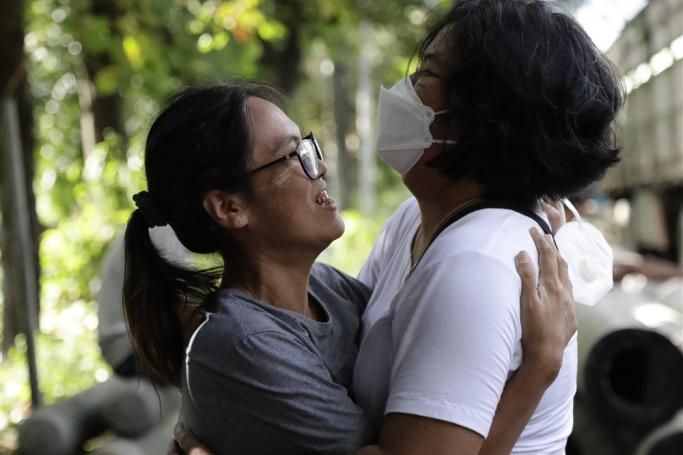3 May is World Press Freedom Day, a day dedicated to acknowledging and celebrating the importance of press freedom, but since the military coup in Myanmar, press freedom and freedom of expression have been completely eradicated.
The majority of journalists from Myanmar now work in foreign countries, border towns, and areas controlled by Ethnic Revolutionary Organizations (EROs) and revolutionary forces. However, a few journalists still work clandestinely within the junta-controlled area.
One anonymous reporter stated that local journalists constantly worry about security and live in fear, which has taken a toll on their mental health.
"Local journalists have to be more careful than journalists living abroad. When traveling, safety concerns must be taken into account. Due to the scarcity of journalists operating within the country, it is easier for the Military Council authorities to identify them [journalists working inside Myanmar] if they are not careful,” said the journalist working in a junta-controlled area.
“I continue to work the journalism job, so I planned to move to a place I believe will be secure. I do not frequently go out to eat or drink, so I stored food several weeks in advance. If a situation in my place becomes tense, I relocate once more. However, no matter how many times I move, for example, if I hear strange noises coming from beneath my apartment, I have to remain alert and cautious while sleeping at night, always prepared to flee if I hear anything suspicious. Whenever I hear a noise, I become anxious and wonder if the military government has come to arrest me. I am afraid that my mental health will be affected in the future.”
According to Article 7 of Myanmar's Media Law enacted in 2014, journalists are exempt from being detained by security-related authorities solely for carrying out their work. Despite the law's provisions, the junta does not adhere to it and continues to arrest and torture journalists.
A female journalist in Myanmar speaks anonymously about the uselessness of media laws, the difficulty of leaving the country, and the fear of being arrested, while also describing her own experience of relocating to avoid an arrest warrant and working in secret to avoid danger.
“Media laws in Myanmar are as good as a useless piece of paper. Even on World Press Freedom Day, we remain fearful of the junta. It's exceedingly difficult for the international community to assist journalists working in Myanmar. To leave the country, journalists must have connections and someone who can arrange for their safety,” she said.
“I had to relocate to a new place [inside Myanmar] because I was issued a 505(a) warrant. I was unable to return to my previous location even after I gave birth to my child, so I have been unable to return for years. As soon as they know I'm back, they'll be waiting to arrest me. So I didn't go back to the previous place, but continued to work quietly in this new place. I avoided things that would seem too dangerous. If I am arrested, the only thing my news outlet company will be able to do is issue a statement about my arrest and the company will give my family some money. I am doing this work only because I am passionate. I'm married so I live low-profile in my new place. I have to be very careful in the new place. I just want to say to all local journalists that there is nothing more important than your own life.”
On 29 March this year, the junta sentenced 13 young individuals, including three journalists, to three years of hard labour and prison terms. They were arrested on 13 September 2022 while gathering information at a protest on Panpingyi Road in Yangon's Kyimyindaing Township. As of 14 December 2022, Reporters Without Borders (RSF) has declared that Myanmar has the second largest number of imprisoned journalists in the world, after China.
A former journalism student said that the regime's habit of arresting journalists to control information is failing in the age of the internet and citizen journalism.
“The regime is starting to arrest journalists like before. This is their habit. If they spread fear, they think that journalists will not dare to write the truth. So, they think they can control information as they like. But one thing they can't control is that, in the age of the Internet, everyone can be a journalist. That's why they can't stop the flow of news. We stopped attending journalism school under the military regime because learning journalism at their school can never be effective, so we can’t get a journalism degree and we can’t enter the news industry. But, on the other hand, we can work as citizen journalists. And the journalism education under them will be a fake journalism education,” he said.
After the 2021 military coup, more than 150 local journalists have been arrested and three journalists have been killed, according to reports compiled by journalists.












